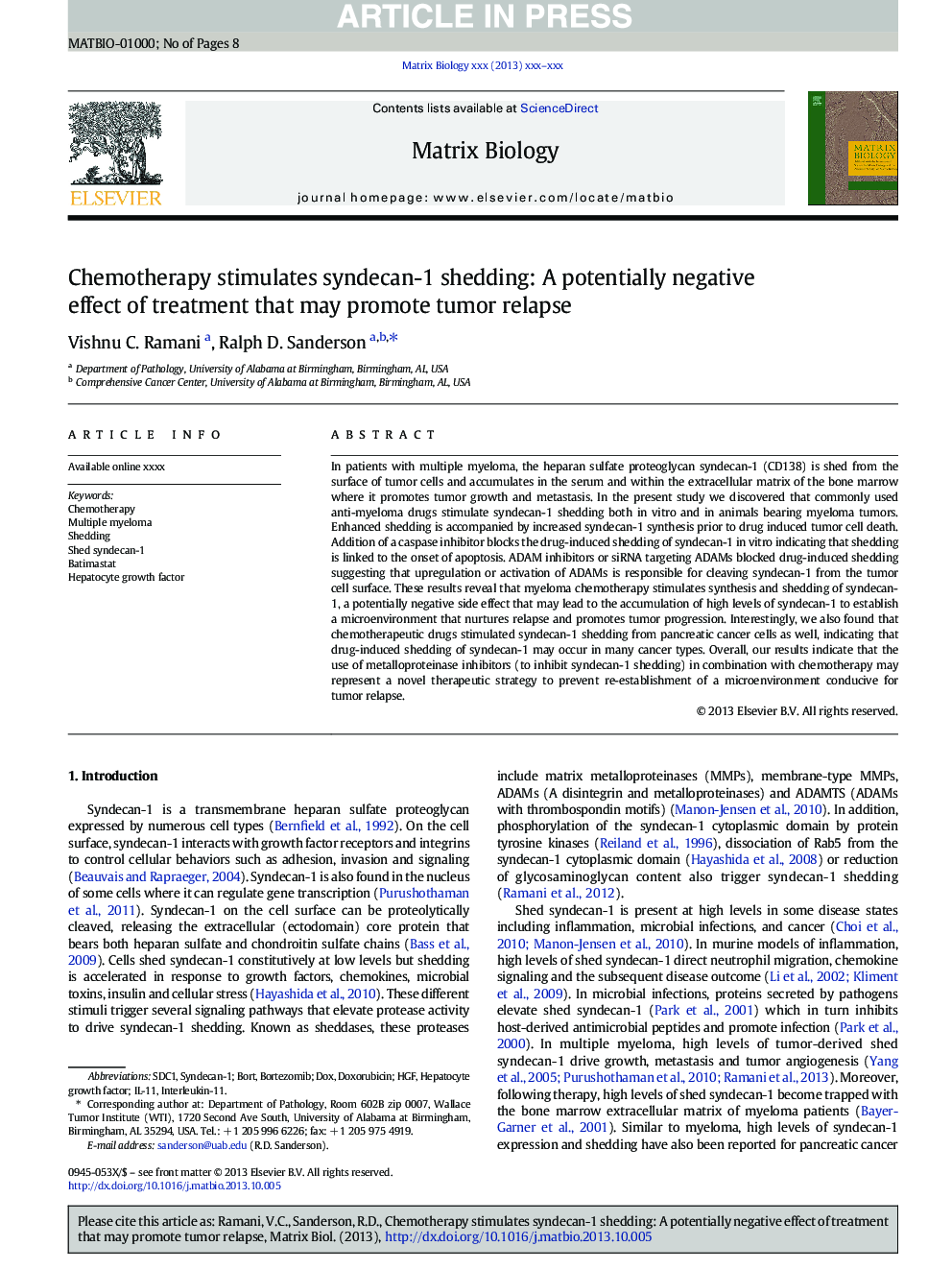| کد مقاله | کد نشریه | سال انتشار | مقاله انگلیسی | نسخه تمام متن |
|---|---|---|---|---|
| 8455380 | 1548021 | 2014 | 8 صفحه PDF | دانلود رایگان |
عنوان انگلیسی مقاله ISI
Chemotherapy stimulates syndecan-1 shedding: A potentially negative effect of treatment that may promote tumor relapse
ترجمه فارسی عنوان
شیمیدرمانی باعث تخریب سندیکان-1 می شود: اثر بالقوه منفی درمان که ممکن است عود مجدد تومور را افزایش دهد
دانلود مقاله + سفارش ترجمه
دانلود مقاله ISI انگلیسی
رایگان برای ایرانیان
کلمات کلیدی
موضوعات مرتبط
علوم زیستی و بیوفناوری
بیوشیمی، ژنتیک و زیست شناسی مولکولی
تحقیقات سرطان
چکیده انگلیسی
In patients with multiple myeloma, the heparan sulfate proteoglycan syndecan-1 (CD138) is shed from the surface of tumor cells and accumulates in the serum and within the extracellular matrix of the bone marrow where it promotes tumor growth and metastasis. In the present study we discovered that commonly used anti-myeloma drugs stimulate syndecan-1 shedding both in vitro and in animals bearing myeloma tumors. Enhanced shedding is accompanied by increased syndecan-1 synthesis prior to drug induced tumor cell death. Addition of a caspase inhibitor blocks the drug-induced shedding of syndecan-1 in vitro indicating that shedding is linked to the onset of apoptosis. ADAM inhibitors or siRNA targeting ADAMs blocked drug-induced shedding suggesting that upregulation or activation of ADAMs is responsible for cleaving syndecan-1 from the tumor cell surface. These results reveal that myeloma chemotherapy stimulates synthesis and shedding of syndecan-1, a potentially negative side effect that may lead to the accumulation of high levels of syndecan-1 to establish a microenvironment that nurtures relapse and promotes tumor progression. Interestingly, we also found that chemotherapeutic drugs stimulated syndecan-1 shedding from pancreatic cancer cells as well, indicating that drug-induced shedding of syndecan-1 may occur in many cancer types. Overall, our results indicate that the use of metalloproteinase inhibitors (to inhibit syndecan-1 shedding) in combination with chemotherapy may represent a novel therapeutic strategy to prevent re-establishment of a microenvironment conducive for tumor relapse.
ناشر
Database: Elsevier - ScienceDirect (ساینس دایرکت)
Journal: Matrix Biology - Volume 35, April 2014, Pages 215-222
Journal: Matrix Biology - Volume 35, April 2014, Pages 215-222
نویسندگان
Vishnu C. Ramani, Ralph D. Sanderson,
